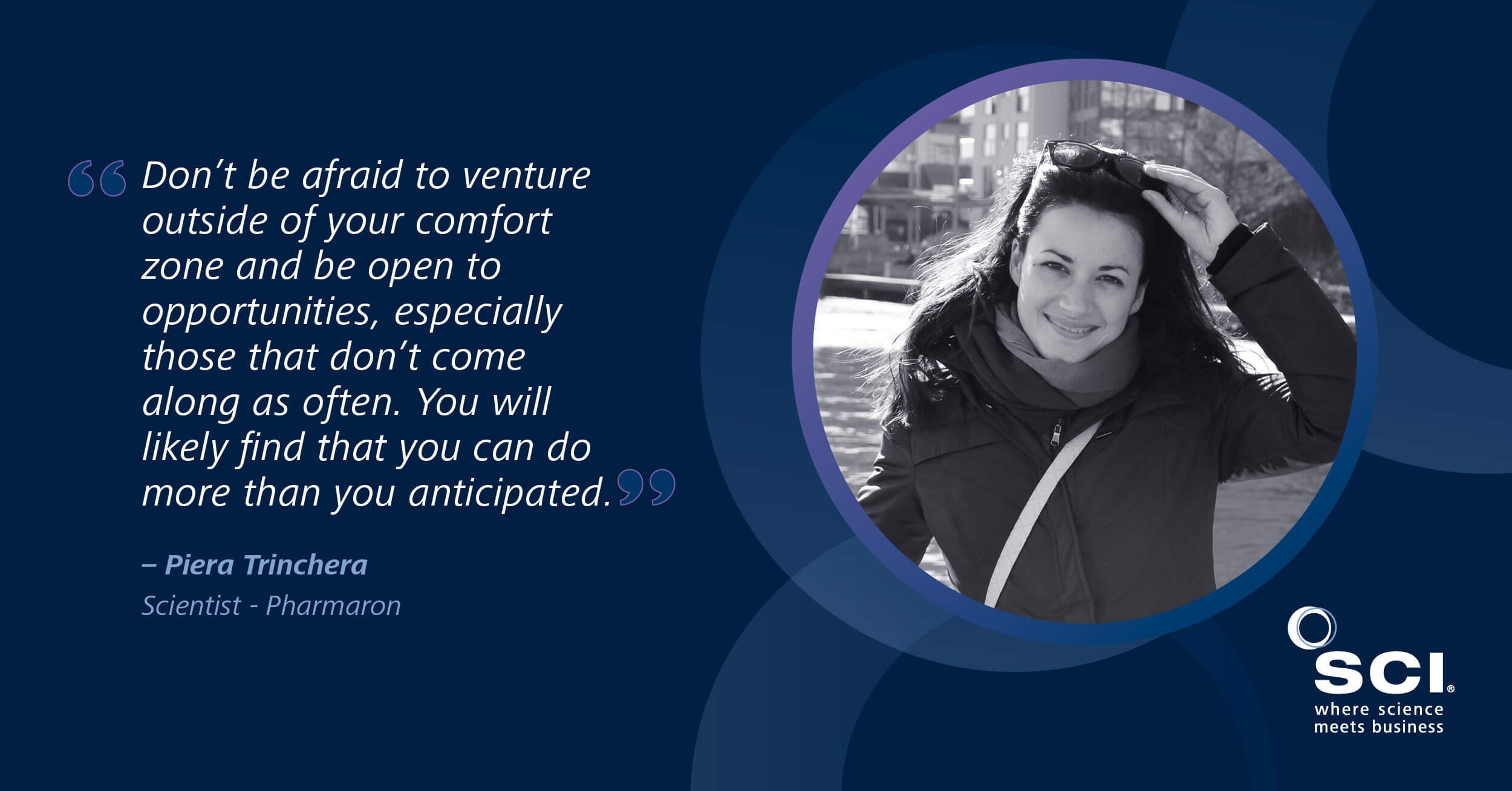Are you interested in pharmaceutical R&D? Which PhD skills are particularly useful in industry? We asked James Douglas, Director of Global High-Throughput Experimentation at AstraZeneca.
Tell us about your career path to date.
I currently have two roles, firstly as Director of Global High-Throughput Experimentation (HTE) within R&D at the pharmaceutical company AstraZeneca. I also work one day a week as a Royal Society Entrepreneur in Residence at the Department of Chemistry in the University of Manchester. Both roles involve developing and applying methods and technology in chemical synthesis to facilitate the drug discovery, development, and manufacturing processes.
My journey to these roles began with a chemistry degree and a passion for running chemistry experiments in the laboratory. At the end of my undergraduate MChem degree at the University of York, I spent an amazing placement year at the pharmaceutical company GlaxoSmithKline, working in drug development. I then went on to do a PhD at the University of St Andrews and postdoctoral research in the USA, both of which focused on developing new methods for synthesis.
My PhD was in collaboration with AstraZeneca and my postdoc was with the pharmaceutical company Eli Lilly, so I knew a lot about medicines R&D and wanted to start a permanent career in that industry.
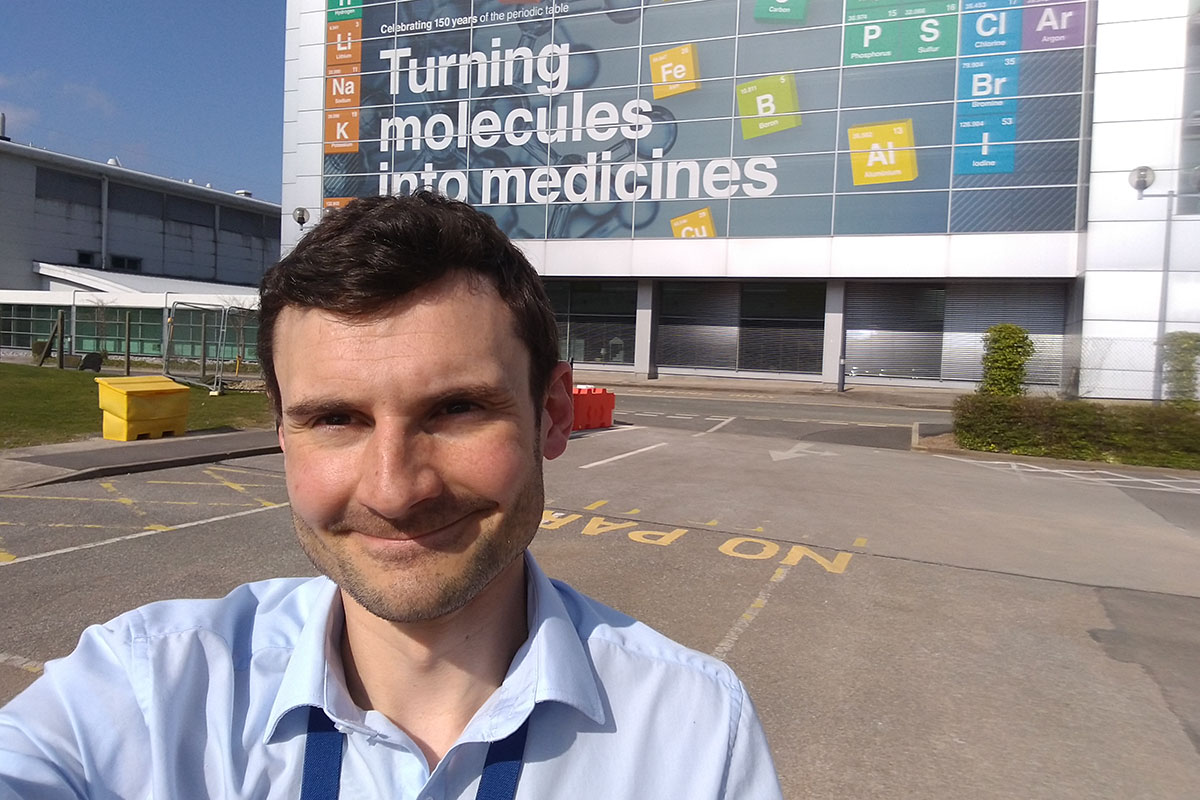
Pictured above: James Douglas
When did you start working for AstraZeneca?
I started at AstraZeneca in 2015. Initially, I spent most of my time working in the laboratory, supporting drug projects across a range of therapy areas such as oncology, heart disease and respiratory treatment. Since then, I have gradually spent less time in the lab across multiple roles and more time working with – and leading wider teams – with a more company-wide focus.
I have remained closely linked to academic research and universities through collaborative projects. This ultimately led me to the Entrepreneur in Residence role where I am accelerating the translation of chemistry innovation from academia to industry, as well as helping provide students and researchers skills and networks relevant to careers in industry.
What is a typical day like in your job?
I spend about two days a week on site at AstraZeneca in Macclesfield and two working from home. As my main job is office based I can also work from home very easily. It has been this way for me since the start of the pandemic. I missed the general atmosphere of a busy workplace but this period coincided with the birth of my daughter, so I feel lucky to have been able to see a lot more of her growing up than I would have otherwise.
I work with many scientists across the company, not just in Macclesfield, such as in Cambridge (UK), Boston, and Gothenburg, so virtual meetings and calls are a big part of my day. When I’m on site, I prioritise face-to face meetings and discussion with the scientists in the laboratory. Very occasionally I get the chance to run some experiments myself, which I really enjoy.
Since 2022, I have spent Fridays within the Department of Chemistry at the University of Manchester. I talk to academics and PhD students about how their research could be applied in industry, discuss current projects, and think up new ones. I’m also preparing a lecture course and organising careers and networking events to prepare students with skills that are important for careers in industry.
Which aspects of your job do you enjoy the most?
I still get the most excited when faced with the challenge of solving difficult scientific problems. This has changed during my career from working individually in the lab, on relatively clear problems during my PhD, to now being part of much larger teams trying to solve highly complex longer term challenges.
Chemistry is always advancing but so are the standards that we must push towards in drug development – for example, finding ways to shorten the time taken to bring new treatments to patients, while at the same time significantly reducing the environmental impact. That’s a daunting – but exciting – opportunity for synthetic chemists like me.
Most of all, even though the timelines are longer on the projects I work on now, there are moments of short-term success that are exciting. This could be an experimental result from the team that opens up a new possibility, or provides important insight into how best to proceed.
>> Side projects can make large waves. Dr Claire McMullin shares the insights from her journey.
What is the most challenging part of your job?
I miss being able to dedicate my time to experimental work and really understanding a problem in detail. I have spent much of my career investing the large amount of time it takes to understand a problem and think about solutions. Unfortunately, that’s no longer the case and not my main responsibility, but I still find this hard to accept!
I miss the level of detail and discussion I once had and find it a challenge not to spend all my time in the laboratory bothering all the brilliant scientists with questions about what they are doing.
How do you use the skills you obtained during your degree in your job?
Most directly, my degree gave me great general skills in chemistry, ranging from practical experimental techniques to chemical analysis and fundamental principles such as kinetics. These were the basis on which I built more specialised skills in organic synthesis during my PhD and postdoc, all of which are crucial for my career so far.
There are also lots of skills I developed that I didn’t appreciate at the time, such as time management, the ability to think independently, organisation, and teamwork. Like many others, my PhD and postdoc also taught me important lessons about resilience and perseverance.
What advice would you give others interested in pursuing a similar career path?
It’s not advice, but what worked for me was to do what I am passionate about. Don’t worry if it takes a while to work out what that exactly is. I decided to do a chemistry degree mostly because I thought I would enjoy the practical experimental side, which I did and still do. It was only during my final year placement at the pharmaceutical company GSK that I decided to do a PhD so I could learn new areas of chemistry.
Finally, it was only during my postdoc that I decided to try and solve the challenges faced with drug development in industry, rather than the more fundamental undertaken as a research group leader in academia.
I’m still finding out what things interest me and these interests keep changing. That’s the joy of disciplines like chemistry and drug development – there is always so much more to learn and challenges to overcome.
How do you forge a career in process chemistry, and how do you overcome the challenges of studying in your second language? Here’s how Piera Trinchera, Associate Principal Scientist at Pharmaron, found her way.
Tell us about your career path to date.
I am an Associate Principal Scientist in the Process Chemistry department of Pharmaron UK. I am based at the Hoddesdon site in Hertfordshire, where I develop synthetic routes for the manufacture of new drugs for clinical studies.
I’m originally from Italy. I completed my MSci at the University of Salento followed by a PhD in organic chemistry at the University of Bari, focusing on new synthetic methodologies. Despite my complete lack of English at the time, I jumped at the opportunity of a six-month visiting PhD position at the University of Toronto.
This was a challenging experience initially as it was my first time living abroad, but ultimately it was very rewarding. After completing my PhD I returned to the University of Toronto to undertake a postdoctoral position focusing on organoboron chemistry. I followed this with a second postdoc at Queen Mary University of London working on aryne chemistry.
After eight years in academia, I wanted to apply the knowledge I had acquired to solving industrial problems that directly impact people’s lives. For this reason, I joined Pharmaron UK where I have been for the last three years and am currently a project lead and people manager.
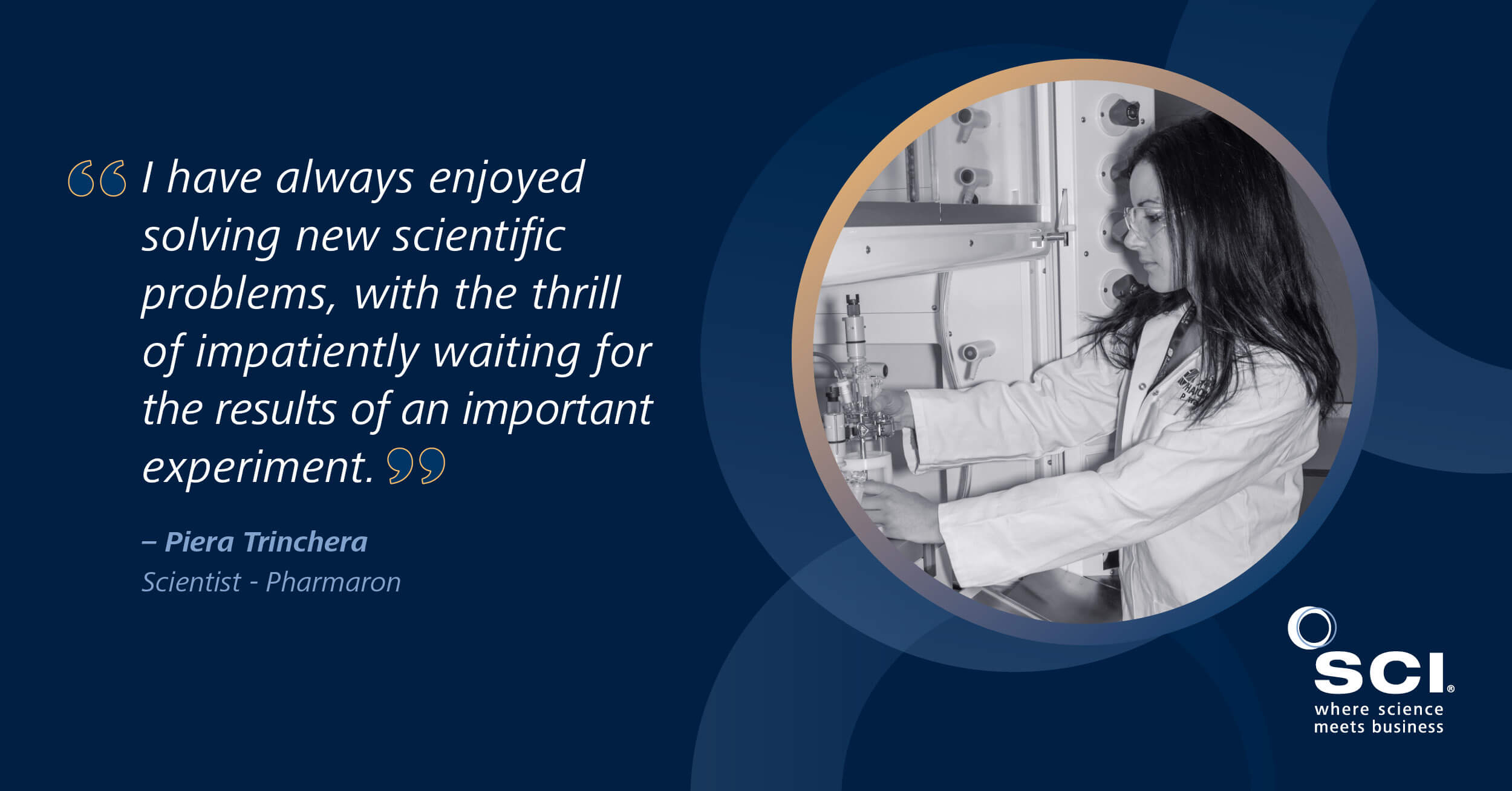
What is a typical day like in your job?
I am involved in multiple projects each year and the overall aim is to provide synthetic chemistry solutions for our global clients. Depending on the type of project work, this can include either developing brand new synthetic routes to novel drug candidates or troubleshooting and improving existing chemical processes, making them suitable for large-scale manufacture.
Ultimately, the goal across all projects is the same: to support the production of large quantities of drugs that are needed for clinical studies with a line-of-sight to commercial production.
On a typical working day, I spend the majority of my time in the lab where I conduct my own experiments and lead a team of chemists who work alongside me. I am directly involved in the planning and designing of experiments, execution in the lab, and subsequent manufacture on multi-kg scale in our pilot plant.
Over the course of a project, a large part of the job is communicating to the clients the project strategy, scientific results, and timelines through regular teleconferences, emails, and written reports.
>> Read how side projects made large waves for Dr Claire McMullin
Which aspects of your job do you enjoy the most?
There are many aspects of this job that I enjoy. I have always enjoyed solving new scientific problems, with the thrill of impatiently waiting for the results of an important experiment or the curiosity in trying to understand an unexpected result.
In addition to the science, seeing your day-to-day lab work translated to the production of kg-quantities of new pharmaceutical compounds that might, after clinical studies, further global health is very rewarding.
Projects are completed on much shorter time frames than in academia (three to six months) and there is no time to stagnate as one so often does in a PhD or Postdoc. I enjoy the large breadth in the chemistry and the different challenges that come with each and every project.
Last but not least, it takes many people from different departments (e.g. in analysis, quality assurance, or manufacturing) working closely together to manufacture a drug compound on a kg-scale.
Working so closely with people from different backgrounds has tremendously enriched me during these years in Pharmaron. It has allowed me to acquire new technical knowledge and given me a deeper understanding of not just chemistry but the overall requirements for synthesising pharmaceutical compounds.
What is the most challenging part of your job?
Preparation of a synthetic process for manufacture on a kg-scale involves considerable development in the laboratory to ensure the chemistry translates from small to large scale. Part of this development is to identify potential issues and blindspots of the chemistry and processes and mitigate them by improving the process before implementation on a large scale.
Despite all these efforts, unforeseen complications do occasionally occur on the large scale and finding solutions in real time can be the most challenging aspect of the job. By keeping a clear head, the chemist can leverage both their deep knowledge of the process and the experience of their more senior colleagues to solve these problems.
How do you use the skills you obtained during your PhD and postdocs in your job?
As I’m in a synthetic chemistry job, I have benefitted enormously from the theoretical organic chemistry knowledge and practical laboratory skills that I acquired over the course of my PhD and postdoc years.
Additionally, in academia I became familiar and confident with other skills that I use on a daily basis. These include scientific communication through either written reports or oral presentations, conforming to good laboratory safety practices, and supervising and mentoring other people.
In general, the overall experience of my post-graduate academic education has provided me with the competencies necessary to scientifically manage projects and lead a team in Pharmaron.>> Get involved in the SCI Young Chemists’ Panel.
Which other skills do you need for your work?
Teamwork is a cornerstone of the job and company’s culture. The synthesis of pharmaceutical compounds according to our quality standards would not be possible without the contribution from, and close collaboration among, multiple people across several departments including analytical chemistry, process chemistry, process safety, quality assurance, formulation and manufacturing.
Is there any advice you would give to others interested in pursuing a similar career path?
Don’t be afraid to venture outside of your comfort zone and be open to opportunities, especially those that don’t come along as often. This will help you build your confidence and you will likely find that you can do more than you anticipated. If you are interested in process chemistry, I would recommend looking into internships and/or finding a mentor who can give you an insight into the job.
As with research, perseverance is an important skill you need to master. You will experience failed reactions and difficult purifications at some point in your career as a process chemist. Be open minded, ask questions and don’t be afraid to seek out support from your colleagues.
>> Read how Ofgem’s Dr Chris Unsworth creates an inclusive working environment and transfers his PhD skills.
Side projects and small impacts can make large waves. Dr Claire McMullin, Computational Teaching Fellow and Director of Year 1 Studies at the University of Bath, shared insights from her career journey.
What is your job?
I’m a computational chemist, with a focus on inorganic reaction systems and explaining observed experimental trends. I work at the University of Bath, but my job role is a little trickier to answer.
Four days a week, I’m employed as a Teaching Lecturer and the Year 1 Director of Studies. On the fifth day I’m a postdoctoral research assistant (PDRA), overseeing the computational aspects of an Engineering and Physical Sciences Research grant.
Tell us about your career path.
I completed my undergraduate and PhD studies at the University of Bristol – under the supervision of Guy Orpen and Natalie Fey – using crystallography and computational chemistry to investigate organometallic complexes.
I wanted to do a post-doc in the US, so I wrote to a few American computational chemists to see if they had funding or a role available. Luckily one did, and I moved to Denton (University of North Texas) to work with Tom Cundari.
I missed the UK, and so returned a year later to Edinburgh for a three-year post-doc with Stuart Macgregor at Heriot-Watt University in collaboration with Dai Davies at the University of Leicester.
Then I joined Bath, initially as a full-time Teaching Fellow for Computational Chemistry. I was lucky there were computing facilities that had a ‘free queue’ to submit calculations, and I was approached by a new colleague, who asked me if I’d be interested in modelling their reaction systems. I had gained a new side-project and hobby for my evenings.
Eventually, more people asked for me to look at their systems, mostly as the department didn’t have anyone with my specific inorganic and organometallic mechanism skills.
Now, over six years later, I’ve almost finished a three-year grant, published 36 papers, developed connections and external collaborators, and secured more funding to run calculations on our ‘premium’ queue. The only downside is that my research is rarely recognised by the university, as it’s not officially part of the role description of my employment.
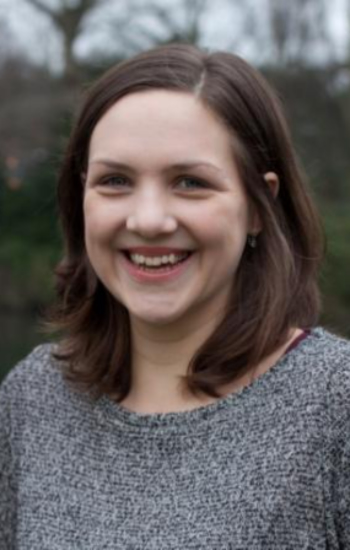
Pictured above: Dr Claire McMullin
What is a typical day like in your job?
I tend to get to my office after 8am, and deal with any overnight emails first, before checking our High Throughput Cluster for how my calculations are doing. Teaching begins from 9:15am, and my day tends to be full of meetings (online nowadays), lectures and labs.
Something will always come up that I wasn’t expecting, be it teaching or research related. I always have a page-long to-do list. Normally, I manage to achieve two to three things a day, but almost always end up adding more things to it!
>> Get involved in the SCI Young Chemists’ Panel.
Which aspects of your job do you enjoy most?
I really enjoy the collaborative nature of my work – be it lecturing or teaching a lab to students, seeing a student having that ‘a-ha’ moment, or talking to my colleagues in the department about plans or issues we are trying to resolve.
Similarly, with the research I do, I am often trying to explain someone’s experimental data. I like trying to provide answers or reasons for the chemistry that has occurred. It’s almost like trying to understand a puzzle, and seeing a calculation finished always sparks joy in me!
What is the most challenging part of your job?
The emails, and the tasks and requests they bring, can sometimes derail my entire day (or week).
How do you use the skills you obtained during your degree in your job?
I feel incredibly lucky that, on any given day, I can submit a calculation and use the computational skills I developed during my degree. But I use much more than computational knowledge – doing a degree teaches you to be organised and methodical, as well as how to juggle several tasks at once.
The demonstrations I did as a PhD student are now used daily in labs. The research talks I gave have given me the confidence to stand up in front of a room full of students and lecture them on a range of topics. And the papers and thesis I wrote have given me a keen eye for detail and editing other people’s documents.
>> Read how Ofgem’s Dr Chris Unsworth creates an inclusive working environment and transfers his PhD skills.
Is there any advice you would give to others interested in pursuing a similar career path?
There are so many points where the ‘leaky pipeline’ could have meant I left chemistry and academia. In all honesty, I’m not quite sure how or why I’m still here! [A lot of it is about] luck, being in the right place at the right time, or a job vacancy coming up when you need a new position.
Timing really is key. It’s half-worked out for me. I’m now permanent in my teaching role and still get to run my calculations, which I love; but that often comes at a cost to my own time and is done more as a hobby than something I’m paid to do. It doesn’t work out for everyone, and that is no reflection on their skills or abilities.
I’ve always had back-up plans or ideas if I decided to exit the academic highway. So, if you do want to pursue a career similar to mine, make sure you have something else to fall back on. And just keep working hard, slowly building on the work you want to do. Small impacts can end up making large waves.
In the latest of our Careers for Chemistry Postdocs series, Dr Chris Unsworth, Head of Stakeholder Engagement and Hydrogen at Ofgem, talks about rising to the net zero challenge, creating a productive, inclusive working environment, and transferable PhD skills.
Tell us about your career path to date.
Currently, I’m the Head of Stakeholder Engagement and Hydrogen at Ofgem. Prior to that, I was Private Secretary to the Co-Directors of the Energy Systems Management and Security (ESMS) Directorate at the energy regulator Ofgem. I’ve also worked as Senior Manager in the GB Wholesale Markets team and as a Research & Insight Manager within Ofgem’s Consumer and Behavioural Insights team.
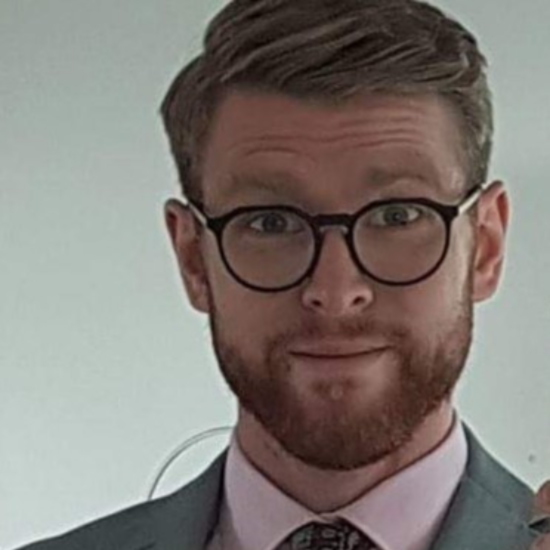
Pictured above: Dr Chris Unsworth
What is a typical day like for you at Ofgem?
I’d say there isn’t a typical day in my job, especially given recent events. Our work needed to shift dramatically to make sure gas and electricity kept flowing at the start of the pandemic and during the sharp increase in wholesale prices for gas.
I wore many hats in my role as Private Secretary. I often acted in a Chief of Staff role for the directorate, getting a sense of the mood within our part of the organisation and advising on how to overcome internal issues as they arise. I also often acted as advisor to the Co-Directors of ESMS as they explored which tools can be used to deliver net zero.
Which aspects of your job do you enjoy the most?
I enjoy being able to work on the net zero challenge in a really meaningful way. I also enjoy being surrounded by colleagues who feel the purpose and weight of responsibility in making progress towards a net zero future. It keeps you accountable, but it’s also really inspiring.
What is the most challenging part of your job?
The reasons I gave above for really enjoying my job can also be described as the most challenging! Delivering a net zero future represents the largest transformation that has ever needed to happen at an industrial level.
Also, because folks are so passionate about their work, it’s really important to make spaces where staff can be transparent and open on their views of the way forward. It’s more important, however, for me to act in a diplomatic manner to make sure we get aligned on a clear and singular route to solving problems.
>> Get involved in the SCI Young Chemists’ Panel.
How do you use the skills you obtained during your degree in your job?
I don’t use the skills I practised in the lab directly in my role. However, there are lots of transferable skills that I picked up from my MChem and PhD in Chemistry. Being able to interrogate evidence and critically assess it is really important in knowing which trends are valid and, therefore, which policy options are the best to investigate further.
Being able to bring data and information from lots of disparate sources and use them to create a clear view of what’s going on is another skill that I practise often. I also do a lot of thinking around systems and flows and the various interactions that go on underneath the surface. Visualising systems and interactions is definitely a helpful skill that I first practised in my degrees.
>> How do you go from a Chemistry degree to a business development specialism? Mark Dodsworth told us his story.
Which other skills are required in the work you do?
My current role is very people oriented and so I need to practise a high level of emotional intelligence. I came out as a gay man while doing my degrees at the University of York and I had specific role models there who helped me explore who I was.
I think my experiences during my degrees really helped grow my capacity for empathy and understanding in others. I’ve been afforded the opportunity to work on a huge number of Diversity & Inclusion initiatives as a result of being open and out at work. I’m also very lucky to work in a space where I feel comfortable to do so.
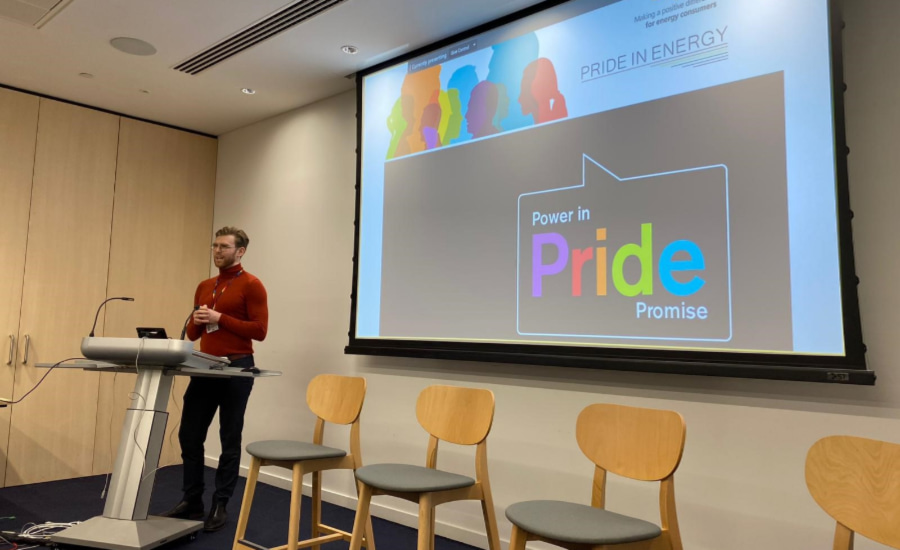
Pictured above: Dr Chris Unsworth
Is there any advice you would give to others interested in pursuing a similar career path?
If you feel a sense of purpose in something you’re doing, then go in that direction. You will always enjoy your work if you understand why you are doing that work.
This may involve you taking a few left turns as you move between different things, but there’s no need to worry about that so much if there’s a clear and consistent theme and purpose that ties it all together.
How do you go from a Chemistry degree to a business development specialism? We hear Mark Dodsworth’s story.
Tell us about your career path to date.
I graduated from the University of Sheffield with a degree in Chemistry, which included a one-year placement at GSK in Stevenage. Working in heterocyclic chemistry at GSK gave me valuable experience, which ultimately helped me secure my first role in industry.
I joined Vernalis Research in Cambridge as a Synthetic Chemist. After more than five years there, I moved to Manchester to work with the CRUK Drug Discovery team as a Medicinal Chemist.
I am now coming up to three years working for Teledyne ISCO – a US company that specialises in the supply of purification equipment to the scientific community. My job role is Business Development Specialist for the Midlands and Wales.
This job involves focusing on the business growth of Teledyne ISCO products throughout the region with new and existing customers. I also provide ongoing support to our growing customer base, whether that be technical or application related.
What is a typical day like in your job?
Day-to-day, my job role varies significantly, which makes it exciting and dynamic. No day or week is ever the same. It could involve anything from responding to customer enquiries by phone or email, discussions around how our equipment can help with the needs of a group or company, or travelling to a customer to run a demonstration of the equipment.
Installation and training new users is a part of the job that I particularly enjoy. We also do exhibitions, which is a great way to show new customers our equipment, and network with existing customers. Some exhibitions also give us the chance to present to an audience.
Which aspects of your job do you enjoy the most?
A job in business development is so much more than I realised. I’ve always really enjoyed helping people, and this job allows me to do that in so many ways, whether it’s providing equipment that makes the chemist’s life easier and helps them with a problem that they’ve been struggling with, or through application support. I love the networking, getting to know people, and hearing about their work too.
>> How do you forge a career in third-level teaching? See how Dr David Pugh goes about it?
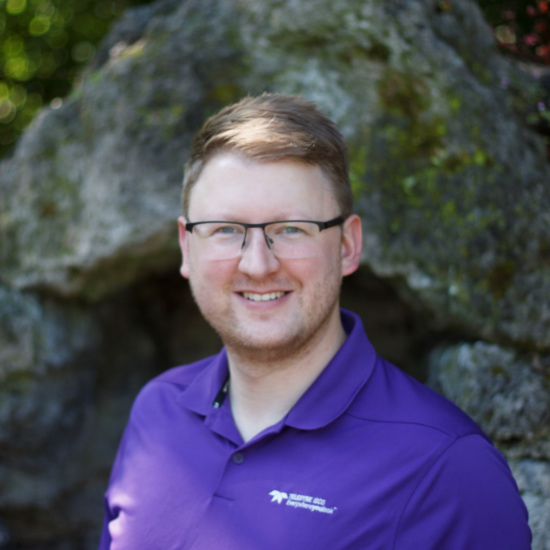
Mark Dodsworth
What is the most challenging part of your job?
Currently the biggest challenge is being at home quite a lot. We can do a lot of support through Zoom, but I’ve missed not seeing our customers and having face-to-face interactions with them.
As part of a sales role, there is a degree of cold-calling required. This is a skill that I didn’t have as a chemist and so I did find it challenging. Ultimately, you are just looking to find those who are interested in your product. A ‘no, thank you’ isn’t anything to be afraid of – you just haven’t found the right customer for you.
How do you use the skills you obtained during your degree in your job?
There are many translational skills that you develop as a chemist and times when these skills come in handy. Presentation skills come in useful when presenting at conferences or to senior management.
Communication skills are important when you are transferring information. Not everyone interprets information the same way, so being clear with the meaning of your words is also important.
Time management and organisation are key to this role too. For example, making customer appointments and allowing time for travel. You also need to make the most of your own time, too, by being organised – for example, seeing multiple customers in one location.
As a result, my calendar is usually planned a month in advance, so organisation skills really help here in the planning of your work.
Is there any advice you would give to others interested in pursuing a similar career path?
This was not a career path I’d ever considered, as I’d always been focused on synthetic chemistry throughout university. The main motivator for me was having the opportunity to work closer with CombiFlash systems, as I’d used these systems throughout my career at GSK, Vernalis and CRUK.
My advice would be to discuss [the roles you are interested in] with as many people currently working in that field as you can. I spent time discussing this kind of role with my friends and networking within the science community before deciding to make the move.
>> Get involved in the SCI Young Chemists’ Panel.
>> Read more about how Rachel Ellis began her career in drug development.








